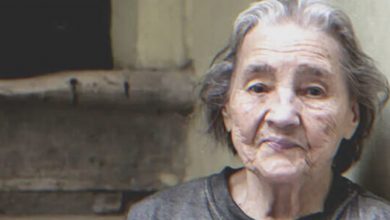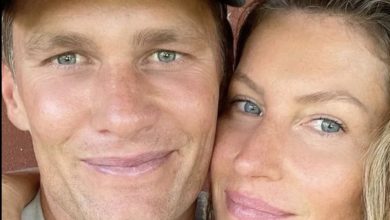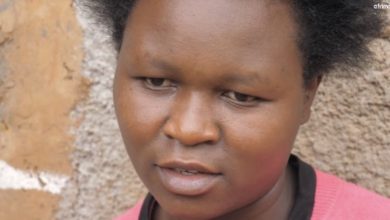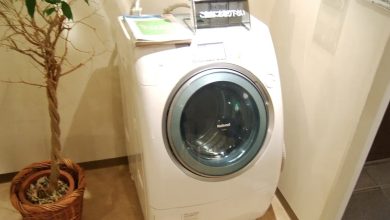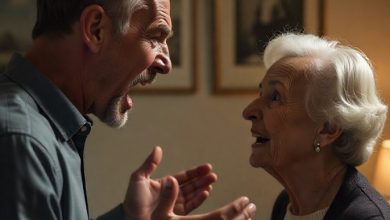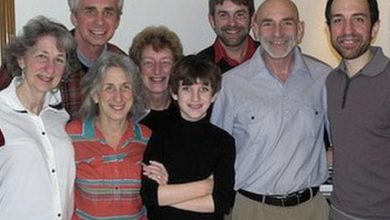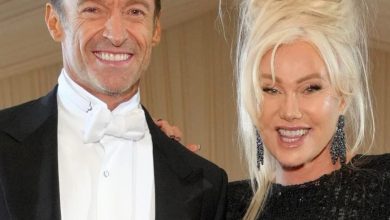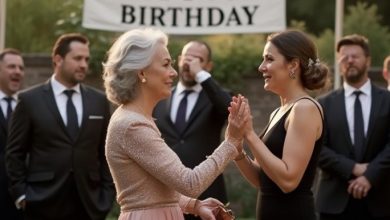“He Thought He Could Outsmart His Father, but a Lifetime of Experience in Law Enforcement Changed Everything That Night”
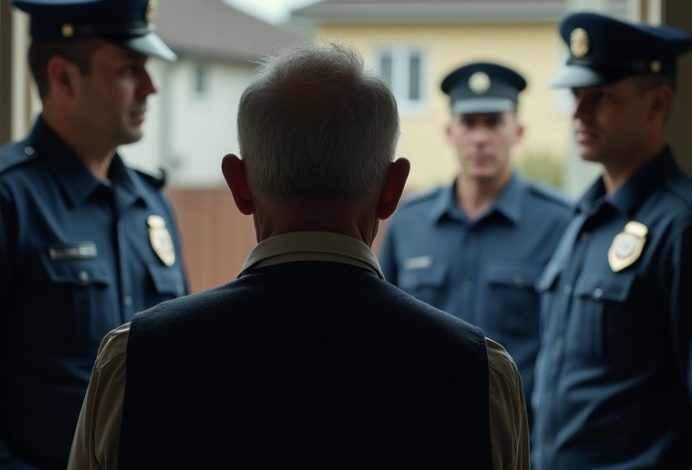
My son thought I didn’t notice him sliding something unusual into my fishing box. But when he turned his back, I quietly moved it into his car instead. Half an hour later, the police knocked on the door…
The morning sun streamed through the dusty windows of my garage in Highlands Ranch, lighting up the air with tiny specks that floated like sparks. At sixty-one, these quiet Saturday fishing trips had become my escape. Ever since my wife, Sarah, passed away three years earlier, heading to Cherry Creek Reservoir with my gear had been my way of holding on to peace, of remembering her without drowning in the silence of an empty house.
That morning, I was carefully preparing my tackle box. The familiar clinks of weights, the metallic jingle of lures, the soft hiss of fishing line slipping through my fingers—it was a rhythm I knew by heart. A comfort. A reminder that some things remained steady even when life had fallen apart.
Then Ryan appeared in the doorway.
“Morning, Dad,” he said, his tone cheerful, almost too cheerful.
I looked up at him. His smile didn’t reach his eyes. His body was stiff, tense in a way I recognized instantly. Thirty years working as a police detective in Denver had taught me to read people—the nervous ticks, the false smiles, the quick glances that revealed more than words ever could. Ryan wasn’t here for a casual hello. He was here with a purpose.
“Getting ready for Cherry Creek?” he asked, stepping into the garage.
“That’s right,” I said evenly, still sorting through my gear. “Should be a good day for it.”
He edged closer to the tackle box, his gaze flicking toward it and then away, then back again. The signs were all there: shallow breathing, a fine sheen of sweat at his hairline, movements that were too controlled to be natural.
“Mind if I check out your setup?” he asked, already reaching forward.
I didn’t stop him. I just watched.
Ryan picked up a lure, turning it in his hand as if he cared about the shape or shine. But I wasn’t fooled. His right hand slipped smoothly into his jacket pocket. When it came out again, it carried something small, wrapped in black tissue paper. He moved quickly, sliding it into the bottom compartment of my box, hiding it beneath coils of fishing line.
The move was clean. Professional. If I hadn’t been paying attention, I would’ve missed it. But I saw every detail.
“Looks good, Dad,” he said, stepping back. His smile tightened. “Well, I’ll let you get back to it. Have a great time today.”
Then he walked away, leaving me in the silence of the garage, staring at the box that only minutes earlier had been a symbol of peace. Now it felt like a weapon left on my workbench.
I didn’t open it right away. Instead, I sat down heavily on the stool by my workbench, my heart pounding in my ears. I thought about our conversation the night before.
We’d had dinner together—grilled chicken, simple, almost normal. But Ryan had been restless, his hands trembling as he pushed food around his plate.
“Dad, I need to ask you something,” he’d said quietly.
“What is it, son?”
“I need money. Fifty thousand.” His eyes had burned into me, desperate, pleading, but also demanding. “No questions asked.”
I’d set my fork down, studying him. “Ryan, you can ask me for anything. But when you ask me for that kind of money without explaining why, you’re not acting like my son—you’re acting like a suspect. What have you done?”
His face had hardened. “Forget it. I’ll handle it myself.”
Then he stormed off, leaving me staring at his half-eaten plate.
And now, here he was, “handling it.” By planting something in my tackle box.
I waited until I heard him upstairs, then slowly opened the box. The sound of the clasps clicking open felt like gunshots. I lifted the tray and there it was—the small black-wrapped package. My hands trembled as I unwrapped it.
Inside was a clear bag of fine white powder.
I didn’t need a lab test to know what it was. Fentanyl. Potent. Deadly. Street value in the tens of thousands. Enough to ruin lives. Enough to end mine if found in my possession.
The betrayal hit me harder than anything in my thirty years on the force. My son—my own flesh and blood—was setting me up.
I thought of Sarah. Her voice came back to me, weak in those last days: “He’s lost without you, Thomas. Promise me you’ll be patient with him.”
Patient. I had been patient. For three years, I had covered his rent, paid his bills, tried to believe his excuses. I had ignored the late nights, the mood swings, the lies. I had explained them away as grief. But deep down, I had known. And now, staring at the bag in my hand, I couldn’t deny it anymore.
Ryan wasn’t just in trouble. He was dragging me down with him.
But he had forgotten something: I wasn’t just his father. I was also a detective. And if he wanted to play this game, he was about to learn who taught him how to play.
I rewrapped the fentanyl, walked outside to his car—the one I had helped him buy—and opened the driver’s side door. I placed the package under the seat, not too hidden, just enough for a standard search to reveal. Then I went back inside and sat in my armchair, waiting.
An hour later, I heard Ryan on the phone upstairs. His voice was urgent, low.
“Yes, I’ll have it tomorrow. Don’t worry. My dad’s stubborn, but I have a plan. By tonight, it’ll be taken care of.”
I listened, my jaw tight.
A little later, I heard another call. His tone was different now—slick, almost rehearsed. “Hello, this is Ryan Miller. I need to report something. My father, Thomas Miller, is hiding fentanyl in his tackle box. He’s been acting nervous all morning. You’ll find it in the garage.”
I closed my eyes. There it was—his plan, spoken out loud.
The flashing lights appeared outside about thirty minutes later. Two squad cars. A DEA van. Three officers at the door, one of them Detective Sarah Rodriguez, my former partner.
“Thomas,” she said, her face careful, professional. “We need to talk.”
Ryan hovered behind me, pretending to be shocked. “What’s happening? Is my dad in trouble?”
“We have a warrant,” Rodriguez said. “There’s been a report of drugs stored here.”
Ryan jumped in quickly. “It’s in the garage. I can show you. His tackle box. He was nervous about it earlier.”
We walked to the garage. Ryan pointed eagerly. “That’s it. Right there.”
The agent opened the box, going through each compartment. Nothing. He looked up, frowning.
“There’s nothing here,” he said flatly.
Ryan’s face drained of color. “That can’t be right! I saw it! It was wrapped in black tissue paper! He must have moved it!”
Rodriguez’s eyes narrowed. “You seem very certain about the details, Ryan. How exactly do you know what was in your father’s box?”
Ryan stammered, his voice cracking. “I just… I was trying to help. I thought I saw something.”
But by then, the officers were already moving toward his car. Minutes later, the bag of fentanyl was pulled from under his seat.
“Ryan Miller,” Rodriguez said coldly, “you’re under arrest for possession of fentanyl with intent to distribute, and for filing a false police report.”
The handcuffs clicked shut. Ryan’s face twisted with fury as he turned to me. “You did this. You moved it.”
I looked at him steadily. “Son, I have no idea what you’re talking about.”
Three weeks later, I sat in a courtroom and watched as Ryan—my boy, my only child—was sentenced to five years in federal prison.
I thought it would break me. Instead, it set me free.
The house, the debts he had forged in my name, the predatory lenders—it all came to light. With time and effort, the forged papers were thrown out. My home was safe again. But my son was gone.
Months later, I sold the house anyway. Too many ghosts. Too many memories of Sarah, and now of Ryan’s betrayal. I moved to Boulder, into a small apartment with a view of the mountains. I kept only what mattered—Sarah’s photos, my fishing rods, and the hard-earned knowledge that sometimes love means letting go.
Ryan wrote me twice from prison. I left the envelopes unopened.
Some bridges, once burned, are best left in ashes.
Because in the end, Ryan had made his choice. And so had I.

